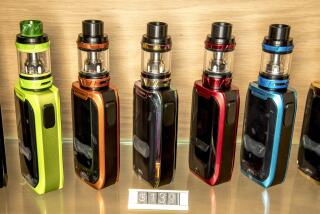New Zealand reconsiders laws liberalizing sale of alcoholic drinks
- Share via
Reporting from Nelson, New Zealand — The brightly colored poster for the annual fundraiser at an elementary school in this quaint town tucked into Tasman Bay advertised face painting, a bouncy castle — and a fully licensed bar.
Principal Don McLean said the gala has offered drinks for years without problems.
“There’s always that challenge of where is it appropriate to have alcohol and where is it not,” McLean said. “You could argue that at a primary school festival maybe it’s not.”
In a country where more than two decades of business deregulation has left booze sometimes cheaper than bread or milk, alcohol has moved to the center of New Zealand’s public debate, with almost daily media and police focus on its effect on public safety.
Discussion has only increased as Parliament has examined a bill that proposes, among other things, to increase the age for buying alcohol in stores from 18 to 20 (it would remain 18 in bars), cut back on 24-hour sales and hold adults responsible for serving minors.
The intense focus on the dangers of dipsomania may seem strange for a country that doesn’t particularly overindulge. On average, alcohol consumption among New Zealanders was 2.4 gallons per person a year compared with 2.3 gallons among Americans, according to 2007 data, the most recent available statistics for both countries, released by the Organization for Economic Cooperation and Development. And of 24 countries with comparable data available, it was 15th highest.
Yet the relatively small size of the country and its population, as well as its built-in insularity as an island nation, tend to create a kind of village society where even relatively minor issues can become the talk of the town.
New Zealand is “a small country where an issue can get on the public agenda quite quickly and become part of the public debate. That’s what’s happened with alcohol,” said Gerard Vaughan, chief executive of the Alcohol Advisory Council, which was set up by Parliament in 1976 to encourage responsible use and minimize abuse of alcohol.
And even if the average consumption isn’t particularly high, New Zealand does have a large number of people who characterize themselves as heavy drinkers: more than 700,000 age 16 and older, out of a population of slightly more than 4 million, said Doug Sellman, director of the National Addiction Center at the University of Otago in Christchurch.
The 1989 Sale of Liquor Act allowed for the 24/7 sale of alcohol and permitted supermarkets to sell wine. Ten years later, the drinking age was lowered to 18 and supermarkets were allowed to sell beer; they are still not allowed to sell hard liquor.
There was “a genuine belief for people at the time that if we liberalized our laws we would suddenly develop a responsible drinking culture like France or Spain,” Vaughan said.
But alcohol, brought by foreigners to the land and its indigenous people, was introduced with a “drink to get drunk” mentality that continues today, Vaughan said.
And because of that type of binge-drinking behavior, “more alcohol could be drunk in other societies and have less harm,” Sellman said. “We’ve become a boozing society.”
A 2008 government call for a full review of alcohol laws resulted in a 500-plus-page report titled “Alcohol in Our Lives: Curbing the Harm.” About 3,000 New Zealanders have submitted comments on the issue to the Law Commission, an independent government-funded organization that reviews laws.
“We went out all around New Zealand late at night, especially on Friday and Saturday nights, and it’s a zoo out there,” said Geoffrey Palmer, president of the commission. “People get drunk; they get disorderly, fall down and get arrested.”
Palmer, a former prime minister and author of the 1989 bill, is now revisiting his own work.
“I came to the conclusion that we’d got it wrong in 1989,” Palmer said. “We’d over-liberalized the law, we’d made liquor too available, we’d allowed the advertising of it … and it had become a sort of social contagion.”
In a country where roads often curve and twist dangerously across jagged cliffs and there are no laws against driving with an open container, alcohol-related accidents have increased. Signs and billboards against driving while intoxicated dot roads, with some ads calling a drunk driver a “bloody idiot.”
“What’s come to a head is the public mood,” Vaughan said. There is “a consensus … that the pendulum has swung too far with liberalization and it needs to swing back.”
Sellman doesn’t think the proposed legislation is enough.
“New Zealand used to actually be a leader in progressive social change,” Sellman said. “We were the first country that had the vote for women … we’ve never had slaves, but we’ve unfortunately … become slow followers of the worst things in the world rather than progressive change like we used to be.”
Abdollah is a special correspondent.
More to Read
Sign up for Essential California
The most important California stories and recommendations in your inbox every morning.
You may occasionally receive promotional content from the Los Angeles Times.










